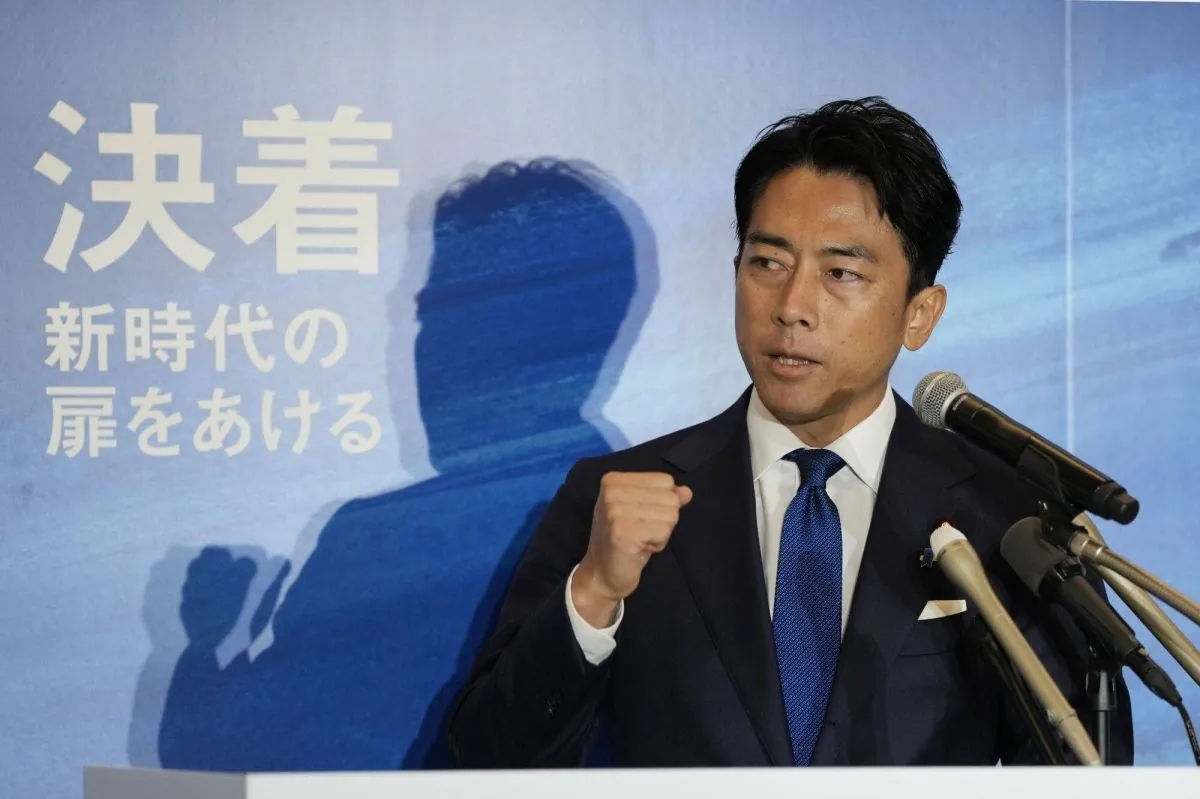Japan's LDP Set for Leadership Vote: Nine Contenders Vie for Prime Minister Role
Japan's Liberal Democratic Party prepares for a crucial leadership election on September 27, with nine candidates competing to become the next Prime Minister. The party aims to overcome recent scandals and regain public trust.

Japan's political landscape is set for a significant shift as the Liberal Democratic Party (LDP), the country's dominant political force since 1955, prepares for a leadership election on September 27, 2024. This vote will determine who will succeed outgoing Prime Minister Fumio Kishida and potentially lead the world's third-largest economy.
A record-breaking nine candidates, including two women, are vying for the top position. This election comes at a critical time for Japan, as the country grapples with various challenges, including economic stagnation, a rapidly aging population, and regional security concerns.
Shinjiro Koizumi, 43, son of former Prime Minister Junichiro Koizumi, is considered a frontrunner. Despite his relative inexperience, Koizumi's youth and political lineage have made him a popular choice. He advocates for modernizing the LDP and implementing reforms to revitalize Japan's economy. Koizumi has expressed support for allowing married couples to maintain separate surnames, a departure from the current 19th-century civil code.

Another strong contender is Shigeru Ishiba, 67, a veteran politician making his fifth attempt at party leadership. Ishiba, known for his expertise in defense and security matters, has proposed an Asian version of NATO and is a vocal supporter of Taiwan's democracy.
The race also features two female candidates: Sanae Takaichi, 63, and Yoko Kamikawa, 71. Takaichi, a conservative aligned with former Prime Minister Shinzo Abe, is making her second bid to become Japan's first female leader. Kamikawa, the current foreign minister, brings international experience and a reputation for diligence to the race.
Taro Kono, 61, and Toshimitsu Motegi, 67, round out the list of prominent candidates. Kono, known for his efforts to digitize Japan's bureaucracy, supports maintaining nuclear energy to meet the country's growing power demands. Motegi, the LDP's secretary general, has proposed a "zero tax increase" plan to stimulate economic growth.
The leadership race occurs against a backdrop of significant challenges facing Japan. The country has one of the world's lowest birth rates and a rapidly aging population, putting strain on its social systems and economy. Additionally, Japan must navigate complex regional relationships, including ongoing territorial disputes with neighboring countries like China and South Korea.
"A big-scale issue like climate change got to be fun, it's got to be cool, and it's got to be sexy, too."
The new leader will also need to address Japan's unique position on nuclear energy. As the only country to have experienced atomic bombings, Japan has a complex relationship with nuclear power, which has influenced its energy policies for decades.
Whoever emerges victorious will face the task of reinvigorating the LDP's image and addressing the myriad challenges facing the nation. The outcome of this election will not only shape Japan's domestic policies but also influence its role on the global stage, particularly in relation to its crucial alliance with the United States and its approach to regional security issues.
As Japan prepares for this pivotal moment, the world watches with interest to see who will lead this economic powerhouse into its next chapter.


































